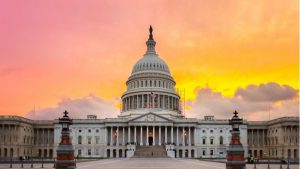After a long day of driving, Iowa’s plow drivers used to have to drive back to a garage to enter their time on a timesheet. The drive could be a considerable number of miles, said the state’s chief data officer (CDO). But not anymore after a move to a cloud-based system.
The Baltimore City Council unanimously passed legislation to provide $3 million in emergency funding towards Internet access and computer equipment for the city’s children.
Maryland Governor Larry Hogan, Virginia Governor Ralph Northam, and D.C. Mayor Muriel Bowser wrote a joint letter to the Trump administration urging them to not prematurely reopen Federal offices.
As a part of its CHARIot Challenge, the National Institute of Standards and Technology (NIST) is launching Internet of Things (IoT) and augmented reality (AR) challenges to improve public safety communications for first responders.
Sixteen Democratic senators, led by Sen. Ron Wyden, D-Ore., are requesting more funds for the General Services Administration (GSA) Technology Transformation Service (TTS) and the United Stated Digital Service (USDS) to upgrade COVID-19 coronavirus economic relief tech at the state and local levels.
Rep. Grace Meng, D-N.Y., introduced a bill to the House on April 21 to provide support for internet devices during emergencies related to COVID-19.
The Federal Communications Commission (FCC) granted temporary access to spectrum to the Navajo Nation in order to help the nation’s broadband internet use during the pandemic.
As students shift to distance learning, having reliable, fast internet has become increasingly essential. With that in mind, Wisconsin announced a new web tool that helps users find free-to-use public broadband locations nearby. The tool, announced April 14, is intended for users whose own internet is either too slow or not available.
In a letter to House leadership, Reps. Bennie Thompson, D-Miss., Cedric Richmond, D-La., Derek Kilmer, D-Wash., and Dutch Ruppersberger, D-Md., wrote to request funding for state and local governments to support cybersecurity efforts in the next COVID-19 relief package.
As election officials adapt to voting during the COVID-19 coronavirus pandemic, fellows at the Brookings Institution are calling for a return to paper ballots to keep elections secure.













